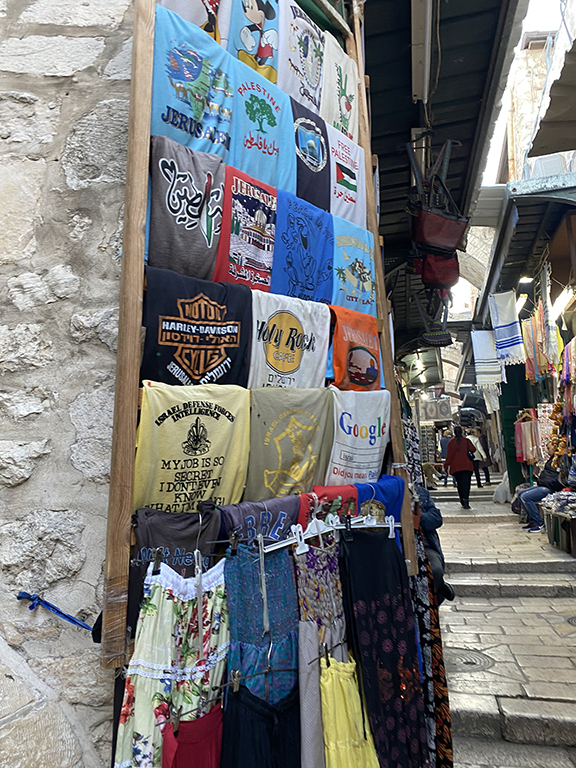
Israel, and most of the Middle East in general, is a place that Americans tend to fear visiting because of the jaded misconceptions and biased viewpoints that the media has crafted for years now. My experience in Israel was life-changing, and the people I encountered and information I learned changed my views drastically.
Politics in the Middle East have always been multifaceted and complicated; quite frankly, these issues may never be resolved. From the oil disputes and the Palestinian occupation, to the wars in Iraq and Afghanistan, as well as countless other political issues, Americans have created unjustifiable prejudices towards the people, cultures and religions in the Middle East. American portrayal of Middle Eastern disputes has some truth to it, undoubtedly. However, there are deep-rooted issues created among American political parties when an individual sides with a particular group in the Middle East, a side that does not align with that individual’s typical political beliefs.
I am a registered Democrat. I would like to consider myself very liberal and probably the least judgemental or prejudiced human being I can be. That being said, I am “supposed” to support the Palestinian viewpoints in the Israeli conflicts and exile of the Palestinians. I do not think it is fair for people to judge so harshly when an individual respects and supports a single opposing view within a political party. I am not less of a Democrat because I am pro-Israel.
Israel is a primarily Jewish state, with the exception of Muslim and Christian populations who reside there. The area of land that is now Israel was declared a state in May of 1948, the same year that Palestinians were exiled from their land and the Arab-Israeli war took place. Not being from either Palestine or Israel, I cannot speak on how this affected me or what this tension and chaos must have felt like for all those involved and affected. However, when traveling to Israel in December, I experienced a nation unlike the one described by Democrats and left-wing news sources in the United States. The Israeli people are not terrorists. They have strong, unwavering pride in their nation, which Americans can and should respect. The land is not all an active war zone, and as a white American woman with no cultural or religious ties to the land, I was still treated with respect by most people.
The land of Israel is a beautiful country with peaceful, accepting people from all different backgrounds and religions. Muslims, Christians and Jews do live in peace throughout most of the country, contrary to popular beliefs. Political unrest burdens the Middle East, and there is nothing a young American woman like me could do to fix that. I did, however, go abroad with an open mind and accepting heart, and I was not disappointed. The Israelis were unbothered by me and my fellow students touring religious sites that did not directly relate to our beliefs, as long as we showed respect.
The Jewish vendors in the Old City of Jerusalem did not sell any merchandise that was offensive, anti-Christian or anti-Arab. They were proud of their own culture and religion without having to discredit that of other people. From my experience, the Jews in Israel do not hate Muslims, Christians, Arabs or anyone for that matter. They do not speak down on any particular group of people and want peaceful coexistence more than anything. They have endured enough persecution and anti-Semitism to understand that hate does not make things better and is not the way to live.
Contrarily, the Arab people who live in Jerusalem were selling t-shirts that were anti-Jewish, anti-Israeli, anti-military and were outright disrespectful. These vendors were selling merchandise in a manner that promoted Palestine but offended Jewish people. This small example of disrespect does not eliminate the fact that Israelis did exile the people from their land, and I can understand and respect the frustration and heartbreak. The land is Israel, and whether people support the exodus or not, there is no more Palestine; there are ways for people to live in peace and still remain in touch with their cultural identity in a way that is not hateful.
The headline news stories about Israelis bombing or destroying innocent Palestinians’ homes and cultural landmarks are often biased; the opposing sides are not ever fully discussed because it is easier to make victims out of the minority population, rather than expressing full stories and letting people who are disconnected from the events decide for themselves. It is infuriating, especially from a bystander’s perspective, because I am not involved in these disputes religiously or culturally, and I am automatically disadvantaged with my knowledge. I feel as though we, as a country, deserve to know the truth before preconceptions are made in the media about a particular area or group of people. This is a fault of almost all news sources though; both right and left-wing news give such a one-sided explanation of events and issues that is impossible to find a middle ground or decipher the truth from a story.
It is important for young people to travel, broaden their horizons and experience the world differently than the way the media portrays it. My time spent in Israel changed my perceptions about humankind, my own identity and American media. I was opened to a different side of the politics that I was unable to get while in the United States. I felt embarrassed to be a journalist when reading some of the popular news stories from both political parties. We need to do better. It is our job to educate ourselves on all sides of the issue and decide which viewpoints we want to support. There is no place for hate, prejudice or bias in the media.

